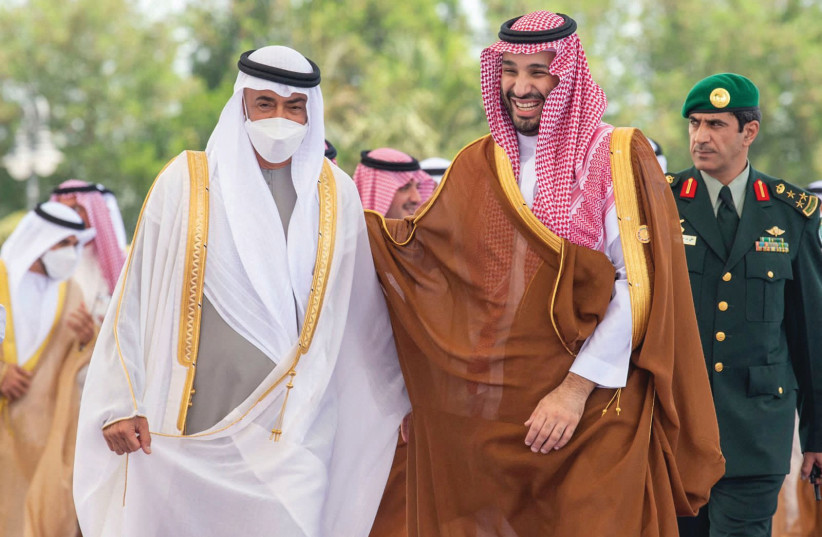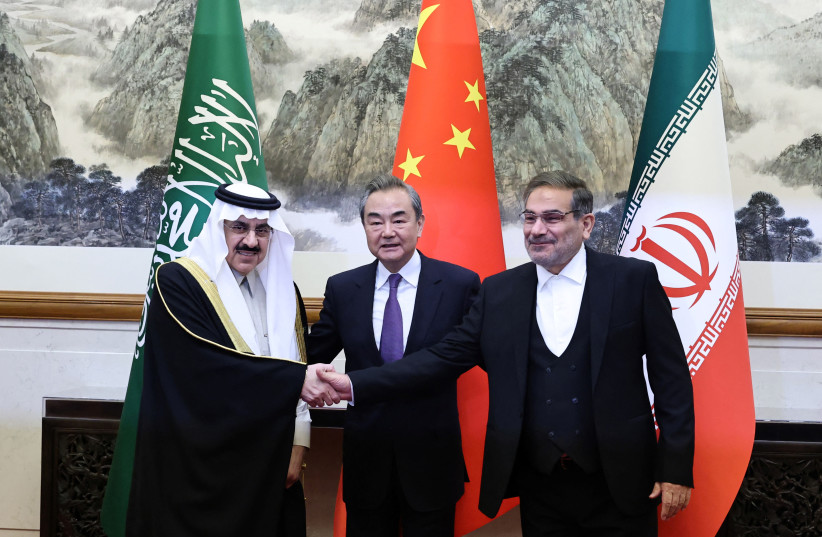Iran-Saudi deal doesn’t necessarily signal a whole new ball game in the Middle East, as some folks might claim; however, there has been a shift in the balance of power.

The recent agreement between Saudi Arabia and Iran has sent shockwaves through the media and government officials. The involvement of China as a mediator has added fuel to the fire, making it imperative to read between the lines to understand the deal’s implications and strategic fallout for all parties involved.
While some observers view the agreement as a sign that Saudi Arabia prioritizes stability and peace with Iran over its alignment with a counter-camp led by the United States and Israel, which views Iran as a strategic threat, others have taken a broader perspective. They have conducted an inventory that evaluates the agreement’s impact on regional and international parties, categorizing them as either winners or losers.
While the recent agreement between Saudi Arabia and Iran on the resumption of bilateral relations may appear promising, it is important to wait for the results of their efforts in settling outstanding regional issues between the two powers. It should be noted that while the Chinese mediator and timing of the agreement may be surprising, the two countries have been exchanging declarations of desire for calm and dialogue for nearly two years, following Iraqi officials announcing their mediation between the parties.
Did the UAE emerge as a loser?
The agreement carries potential profit and loss calculations for several regional parties. However, categorizing the UAE as a loser in the agreement may not be entirely accurate. The UAE has consistently called for dialogue and stability in the region, it has resumed official relations with Iran and it does not support wars in the Gulf, whether between regional countries or between Iran and Israel.
It is widely recognized that the UAE’s ambitious development goals, much like Saudi Arabia and other GCC countries, are reliant on a stable and secure atmosphere. As such, any looming military conflicts could have a negative impact on the UAE’s economy, present significant security challenges and create unnecessary tensions.

Did Israel emerge as a loser?
Meanwhile, some observers have classified Israel as a potential loser in the agreement, having lost a potential regional ally in the face of what it considers an existential strategic threat. However, it is important to note that the Iranian-Saudi agreement does not signify the disappearance of the Iranian nuclear threat to any country in the region, including Israel.
It is critical to differentiate between cooling tensions and transforming Iran into a friendly country for Saudi Arabia, as the events and accumulated history between the two countries over the past seven years will not disappear overnight with a stroke of a pen or an agreement whose ink has not yet dried.
Despite the recent agreement between Saudi Arabia and Iran, doubt may still linger in the space of relations for a period that could vary depending on the development of relations between the two sides. Furthermore, formal relations between Israel and Saudi Arabia have not yet been established and the kingdom’s stance toward normalizing relations with Israel remains, at least officially, in the testing phase.
AS SUCH, the agreement with Iran is not seen as an adversary to any trend in this regard, nor does it hinder any Saudi effort to establish official relations with Israel if Riyadh decides to do so. In fact, the agreement could provide a more favorable environment for such a step to proceed, with direct channels of communication to reassure Tehran.
So, the word on the street is that Saudi Arabia wants the US to jump through some hoops before they agree to play nice with Israel, like giving the green light to nuclear energy for peaceful purposes. But I don’t think this goes against the recent agreement and it might even make Riyadh look better and put pressure on Washington to reconsider its stance.
In any case, Saudi Arabia has expressed its reluctance to join any military alliance against Iran, whether in partnership with Israel or other countries. This decision is attributed to the Kingdom’s focus on achieving its development goals and avoiding conflicts that could hinder its progress or drain its resources. With the recent visits of US officials to Israel, Iraq and other Arab nations, it is also speculated that Riyadh is seeking to distance itself from potential military escalations against Iran.
Furthermore, a recent agreement between Iran and the International Atomic Energy Agency could restrict any attempts by Israel to launch a military strike on Iran’s nuclear facilities. The current regional and international environment does not support such a move, particularly since China has taken on a mediator role in resolving the crisis between the Gulf poles. Iran, too, stands to benefit greatly from the agreement, given its need to butter up the global community and narrow down the reasons for any further military escalation against it.
The deal also presents an opportunity for Iran to reduce tensions and limit spending on pro-Iranian militias and sectarian arms, which has become a priority due to internal protests and the country’s economic struggles. Other regional players, such as Iraq, Lebanon, Syria and Yemen, stand to benefit, as well.
The US emerges as a loser
On the other hand, the US emerges as a strategic loser in this scenario. The trilateral statement coming out of Beijing at a time when Sino-American relations are strained places the US at a disadvantage, regardless of the extent of the loss.
To put it in a nutshell: the Iran-Saudi deal doesn’t necessarily signal a whole new ball game in the Middle East, as some folks might claim; however, there has been a shift in the balance of power among regional and global players, following the post-Ukraine era.
These developments reflect the strategic preparations underway for the interactions of the coming years and decades, taking place in a world with some potential for other players to compete for leadership of the global order.
The writer is a UAE political analyst and a former Federal National Council candidate.
Content retrieved from: https://www.jpost.com/opinion/article-735115.